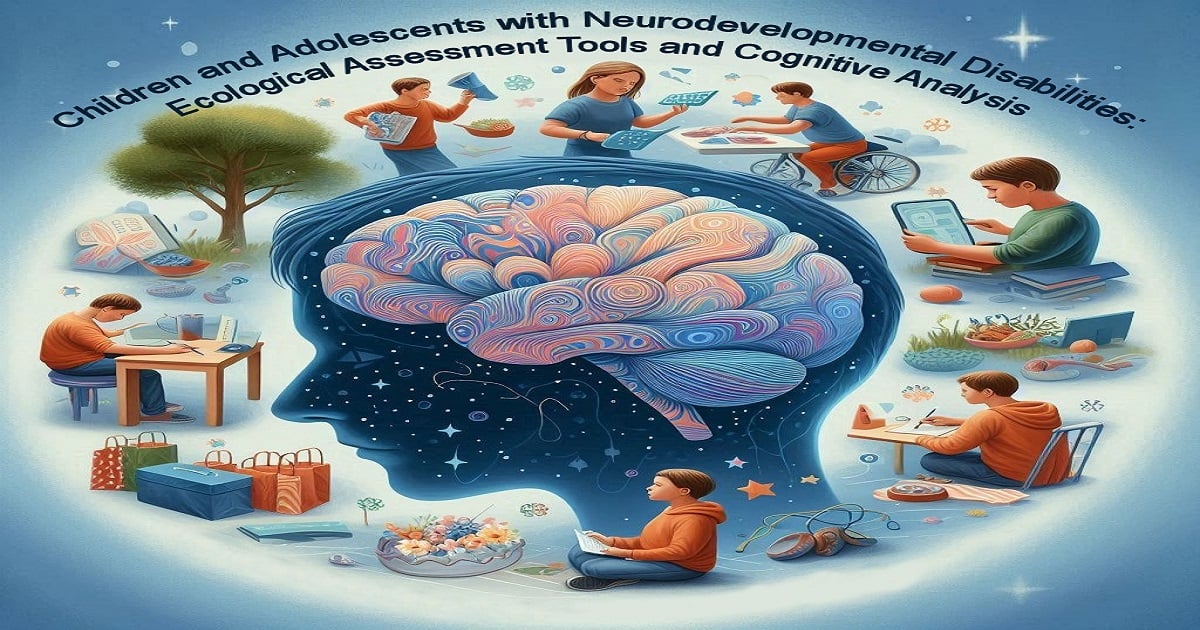Children and Adolescents with Neurodevelopmental Disabilities: Ecological Assessment Tools and Cognitive Analysis
A special issue of Children (ISSN 2227-9067). This special issue belongs to the section "Pediatric Neurology & Neurodevelopmental Disorders".
Deadline for manuscript submissions: 10 February 2025 | Viewed by 666

Special Issue Editors
Interests: relationships between individuals’ daily functioning and higher-level cognitive processes (executive function and awareness); individuals with neurodevelopmental difficulties (attention, learning, and motor difficulties, autistic disorders, etc.); ecological and performed-based assessment tool; generation and implementation of cognitive strategies with cognitive graduated prompts training; mental effort during daily activities; developing and implementing therapy programs (FITTED)
Interests: cognitive rehabilitation; executive function; occupation; children with neurodevelopmental deficits; schizophrenia
Special Issue Information
Dear Colleagues,
I am pleased to invite you to submit articles to this Special Issue of Children on "Children and Adolescents with Neurodevelopmental Disabilities: Ecological Assessment Tools and Cognitive Analysis".
Ecological assessments evaluate how well a tool reflects a child or adolescent's functioning in their real-world daily life. In the literature, performance-based ecological diagnoses are widely recognized as effective for cognitive assessment, particularly for evaluating executive functions.
We seek papers on innovative ecological assessment tools, including their effectiveness, practical applications, interdisciplinary approaches, and evidence-based recommendations. This Special Issue aims to enhance our understanding and support for children and adolescents with neurodevelopmental disabilities by showcasing cutting-edge research and fostering a comprehensive discourse on novel strategies and interventions. We are particularly interested in original research articles, systematic reviews, meta-analyses, and case studies that contribute to this critical field.
We look forward to your valuable contributions.
Dr. Yael Fogel
Prof. Dr. Naomi Josman
Guest Editors
Manuscript Submission Information
Manuscripts should be submitted online at www.mdpi.com by registering and logging in to this website. Once you are registered, click here to go to the submission form. Manuscripts can be submitted until the deadline. All submissions that pass pre-check are peer-reviewed. Accepted papers will be published continuously in the journal (as soon as accepted) and will be listed together on the special issue website. Research articles, review articles as well as short communications are invited. For planned papers, a title and short abstract (about 100 words) can be sent to the Editorial Office for announcement on this website.
Submitted manuscripts should not have been published previously, nor be under consideration for publication elsewhere (except conference proceedings papers). All manuscripts are thoroughly refereed through a single-blind peer-review process. A guide for authors and other relevant information for submission of manuscripts is available on the Instructions for Authors page. Children is an international peer-reviewed open access monthly journal published by MDPI.
Please visit the Instructions for Authors page before submitting a manuscript. The Article Processing Charge (APC) for publication in this open access journal is 2400 CHF (Swiss Francs). Submitted papers should be well formatted and use good English. Authors may use MDPI's English editing service prior to publication or during author revisions.
Keywords
- children and adolescents
- functional cognition
- ecological assessment
- performances-based assessment
- neurodevelopmental disorders
Benefits of Publishing in a Special Issue
- Ease of navigation: Grouping papers by topic helps scholars navigate broad scope journals more efficiently.
- Greater discoverability: Special Issues support the reach and impact of scientific research. Articles in Special Issues are more discoverable and cited more frequently.
- Expansion of research network: Special Issues facilitate connections among authors, fostering scientific collaborations.
- External promotion: Articles in Special Issues are often promoted through the journal's social media, increasing their visibility.
- e-Book format: Special Issues with more than 10 articles can be published as dedicated e-books, ensuring wide and rapid dissemination.
Further information on MDPI's Special Issue polices can be found here.







